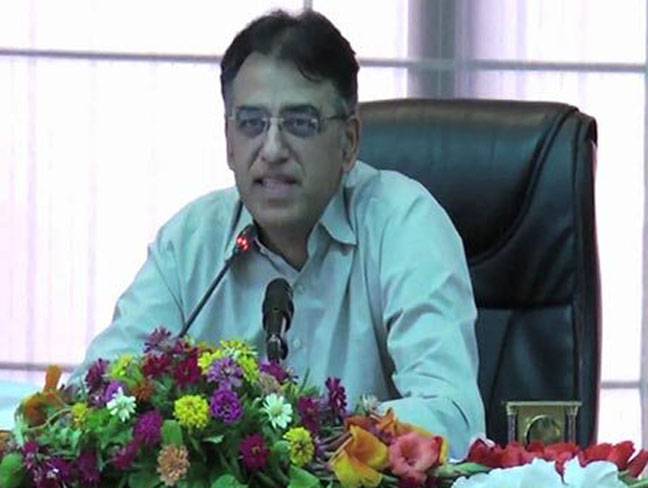ISLAMABAD - Finance Minister Asad Umar on Tuesday rejected the impression that country was facing any economic crisis saying all fundamental economic indicators were improving.
“The financing gap for the current fiscal year has been plugged and the fruit of government’s vibrant economic policies will soon be visible,” the finance minister said at 11th South Asia Economic Summit (SAES) held under the auspices of Sustainable Development Policy Institute (SDPI). He further said that country didn’t have any current account crisis, though a lot needed to be done.
“Exports are witnessing an upward trend while the imports are decreasing. Current account deficit is also being overcome gradually,” he maintained.
Commenting on the recent dollar spike against rupee, the finance minister said that neutrality of State Bank of Pakistan (SBP) was intact. “We believe in autonomy of the institution whereas there is no change in the government policy.”
He said that the recent decision on exchange rate was taken by the central bank; however, there was a need to improve the communication mechanism, that’s why the SBP governor had also been taken on board to devise a communication mechanism in this regard. “If needed, we will further institutionalise the structure and role of SBP,” he said.
Umar said that Indian response to Pakistan’s goodwill gesture to open Kartarpura Corridor was unfortunate; however, Pakistan was still pinning hopes to strengthen SAARC collaboration in future. “We really need to think out of the box solutions for regional cooperation amid tensions and confrontations between the two states,” the minister was of the view.
He added that Intra-regional trade, especially trade between Pakistan and India, was one of the major growth drivers. Stressing the need to create political space for regional cooperation, he said, “It is our inability that we failed to get people of the region out of poverty. It is a real opportunity for those political leaders, who believe in a peaceful and prosperous South Asia.”
Dr Shamshad Akhtar, the former caretaker finance minister, said that this new age of globalisation and digitisation, amid nationalism needed enhanced regional cooperation and connectivity.
She said that re-imagining regional connectivity was often costly and time-consuming and that required patience and leadership. Connectivity should not be constrained to road development but to have ICT, digitisation, energy cooperation and construction of ports.
She said, “Sustainable Developments Goals (SDGs) can guide us to improve trans-boundary corridor, where institutions like SDPI have distinct role to play. Regional connectivity is of course gaining momentum today, where Belt and Road Initiative (BRI) led by China can steer the effort for regional cooperation.”
Dr Shamshad said that BRI had the potential to generate momentum to enhance regional partnership, which was currently in the state of deadlock especially between Pakistan and India.
“Economy needs to progress on a set of new elements of requisite reforms, which include streamlining tax system, improvement in banking system, easing the procedures to do business, improving competitiveness and promoting trade facilitation through trade regulation.”
SDPI Executive Director Dr Abid Qaiyum Suleri said that when SAARC was unable to move forward, the SAES platform kept the discussion on economy and trade cooperation alive.
He said that South Asian countries should keep their political differences aside for the sake of shared objectives, otherwise the region would remain least connected. Nevertheless, Dr Suleri said, “We hope for improved regional cooperation, and opening of Kartarpura Corridor is a welcome step for peaceful co-existence.
He said that in this age of digitisation and internet, despite differences, people of both Pakistan and India were still connected through technology. He said technology had brought the two states closer. “We need to strive for re-imagining connectivity, where everyone will have freedom to live and move across borders.”
Dr Nagesh Kumar, the Head of UNESCAP South and South-West Asia office, New Delhi, India, said that South Asia was today the fastest growing region in the world, however, there was a need to bridge the development gaps, such as poverty, gender inequality, poor state of health and education, etc.






